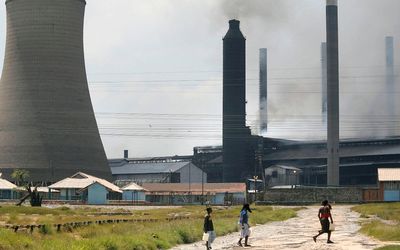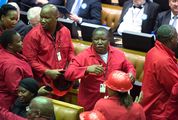Mining firms ‘must get used to’ higher electricity tariffs in Zambia
by Mike Cohen,
2016-02-11 17:37:19.0
MINING companies operating in Zambia would have to get used to higher power tariffs because the government could not afford to subsidise them and needed to encourage private investment in generation to alleviate a chronic supply shortage, Mines Minister Christopher Yaluma said.
"The tariffs have been very, very low and far from cost-reflective," Mr Yaluma said in an interview at the Mining Indaba in Cape Town on Wednesday. The mining companies "want us to pay. They must be realistic."
The government increased electricity charges for mining companies to 10.35 US cents a kilowatt-hour from January 1. While it reversed a 200% increase in charges for commercial and industrial customers on February 6, two months after it came into effect, no concession was announced for the mines, which use more than half of the Southern African nation’s power.
Zambia, Africa’s second-biggest copper producer, gets most of its electricity from hydropower plants, which have been hobbled by drought. Some power is being imported at a cost of 19c/kWh, meaning mines are still being subsidised and the government will consider further price increases, Mr Yaluma said.
"We must get cost-reflective tariffs, so we allow independent participants in power generation to come in," he said. "We have liberalised but they can’t come in because of the low tariffs."
The old electricity prices differed from mine to mine. Vedanta Resources said last month the charges at its Zambian unit, Konkola Copper Mines, increased 25%, adding $3m a month to its costs.
In 2014, mining companies filed a lawsuit challenging proposed power tariff increases, a case that is still being considered by the Lusaka High Court.
Mr Yaluma said power shortages would ease when the 300MW Maamba coal-fired project came into operation in June.
"By next year, we’ll have adequate power to cater for our mining needs," he said. "It will be from renewables, it will be from coal. We are getting another 120MW from hydro. The only problem is if we don’t have sufficient water."
The minister also said the government was still evaluating proposals from the nation’s chamber of mines to introduce a new sliding-scale mine royalty system, with the levy that operators pay determined by metal prices.
Bloomberg

Residents walk down a road in front of a plant owned by Mopani Copper Mines Plc in Kitwe, a town on the Copperbelt in northern Zambia. Picture: BLOOMBERG/JEAN-CLAUDE COUTAUSSE
MINING companies operating in Zambia would have to get used to higher power tariffs because the government could not afford to subsidise them and needed to encourage private investment in generation to alleviate a chronic supply shortage, Mines Minister Christopher Yaluma said.
"The tariffs have been very, very low and far from cost-reflective," Mr Yaluma said in an interview at the Mining Indaba in Cape Town on Wednesday. The mining companies "want us to pay. They must be realistic."
The government increased electricity charges for mining companies to 10.35 US cents a kilowatt-hour from January 1. While it reversed a 200% increase in charges for commercial and industrial customers on February 6, two months after it came into effect, no concession was announced for the mines, which use more than half of the Southern African nation’s power.
Zambia, Africa’s second-biggest copper producer, gets most of its electricity from hydropower plants, which have been hobbled by drought. Some power is being imported at a cost of 19c/kWh, meaning mines are still being subsidised and the government will consider further price increases, Mr Yaluma said.
"We must get cost-reflective tariffs, so we allow independent participants in power generation to come in," he said. "We have liberalised but they can’t come in because of the low tariffs."
The old electricity prices differed from mine to mine. Vedanta Resources said last month the charges at its Zambian unit, Konkola Copper Mines, increased 25%, adding $3m a month to its costs.
In 2014, mining companies filed a lawsuit challenging proposed power tariff increases, a case that is still being considered by the Lusaka High Court.
Mr Yaluma said power shortages would ease when the 300MW Maamba coal-fired project came into operation in June.
"By next year, we’ll have adequate power to cater for our mining needs," he said. "It will be from renewables, it will be from coal. We are getting another 120MW from hydro. The only problem is if we don’t have sufficient water."
The minister also said the government was still evaluating proposals from the nation’s chamber of mines to introduce a new sliding-scale mine royalty system, with the levy that operators pay determined by metal prices.
Bloomberg





















Change: 0.75%
Change: 0.91%
Change: 0.76%
Change: 0.79%
Change: 0.56%
Data supplied by Profile Data
Change: 0.43%
Change: 0.90%
Change: 0.75%
Change: 0.00%
Change: 0.66%
Data supplied by Profile Data
Change: 1.15%
Change: 1.01%
Change: 0.91%
Change: 1.33%
Change: 1.17%
Data supplied by Profile Data
Change: -0.29%
Change: -0.51%
Change: 0.63%
Change: 0.51%
Change: 0.19%
Data supplied by Profile Data